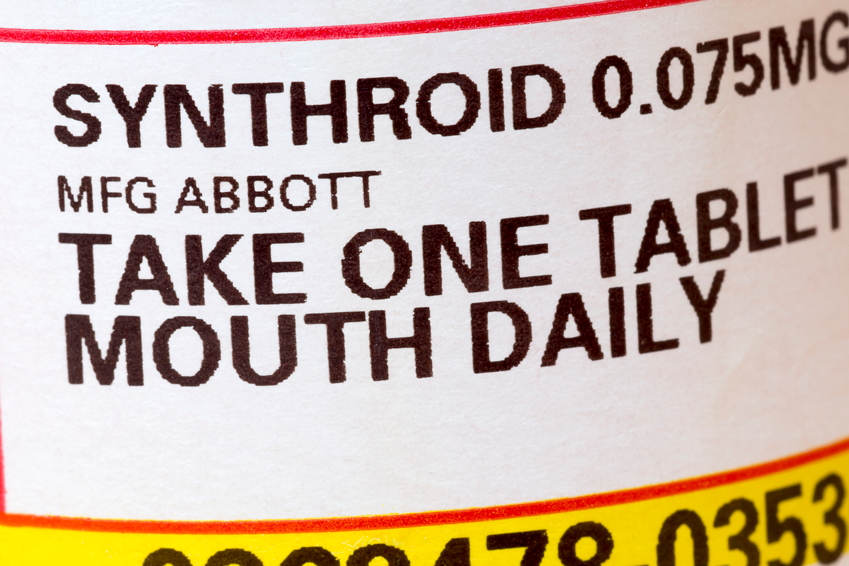contributed by Aly Adair, edited by Clifford S. Yurman
Synthroid® can be a lifesaver drug for those who have been diagnosed with thryroid issues.
Typically, Synthroid is used to replace a hormone normally produced by the thyroid to control your body’s energy and metabolism.
Hypothyroidism occurs when you have an under-active thyroid gland. The U.S. Food and Drug Administration (FDA) approved levothyroxine sodium for treatment of hypothyroidism. Some familiar brand names for levothyroxine sodium are Synthroid®, Levoxyl®, and Levothroid®.
[arve url=”http://res.cloudinary.com/mcsvideoc3/video/upload/v1528470903/thyroid-gland.mp4″ autoplay=”yes” controls=”yes” muted=”yes” loop=”yes” play_icon_style=”none” mode=”lazyload”]
Synthroid can also be used for other purposes, including the treatment or prevention of goiter.
WARNING: Before taking Synthroid, tell your doctor if you have heart disease, coronary artery disease, anemia, diabetes, adrenal or pituitary gland problems, or a history of blood clots. Also, tell your dentist if you are taking Synthroid before any other medications are administered to you.
Many patients who are prescribed Synthroid must take the medication every day for the rest of their lives. Side effects can occur when a patient suddenly stops taking Synthroid or if the medication has lost its potency over time.
Things You Should Know About Synthroid
This writer has been taking Synthroid for about five years, as does four other members of my family. One thing is for sure when you are prescribed Synthroid: try very hard not to miss a dose. Make sure you read the two-page Synthroid advisory message that comes with the prescription. There are things you must do and other medications you must avoid so that you don’t reduce the body’s ability to absorb Synthroid.
Simple things like taking vitamins, minerals, herbal products, antacids containing aluminum, products like Citracal, iron supplements, and cholesterol-lowering drugs can reduce the effectiveness of Synthroid if taken at the same time. Wait 4 hours after taking Synthroid to take other prescription or over-the-counter products that your doctor has approved.

Side Effects of Synthroid
Synthroid requires several weeks to actually take effect. Your doctor will need to constantly monitor your progression while using Synthroid. It is common for your doctor to change the doses of Synthroid until the right hormone level is achieved. Even if you feel well, do not suddenly stop taking the medication. Mild side effects you may experience during the use of Synthroid include:
- Weight change
- Appetite change
- Headache
- Nervousness
- Sleep problems or insomnia
- Irritable feeling
- Fever, hot flashes, sweating
- Changes in menstrual periods
- Mild hair loss
I borrowed several Synthroid pills from a relative when I forgot mine while traveling. I thought it was better to take a higher dose than to miss a dose. The borrowed pills were 5 times stronger than mine and I had serious side effects from overdosing. Some of the symptoms from overdosing on Synthroid include:
- Chest pain
- Pounding heartbeat
- Tremor
- Leg cramps
- Confusion
- Vomiting
- Diarrhea
- Seizures
ALWAYS consult your doctor immediately if you are taking Synthroid and experience side effects or changes in your health. Be sure to tell your doctor if you are taking any other prescription medications, over-the-counter drugs, vitamins, or supplements before being prescribed Synthroid.
This drug is a lifesaver, if used properly. It takes a little work, but once you’ve got the rhythm of it, it’s possible you won’t even know you have a thyroid problem!


